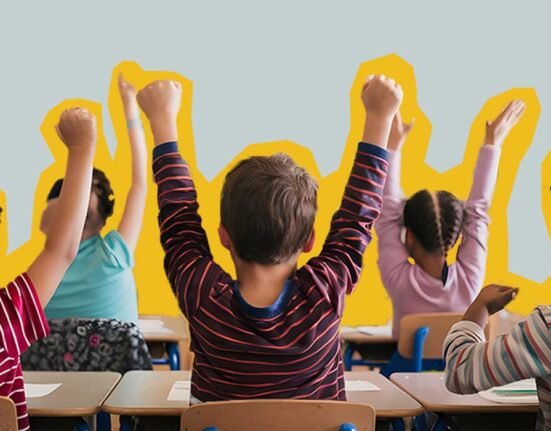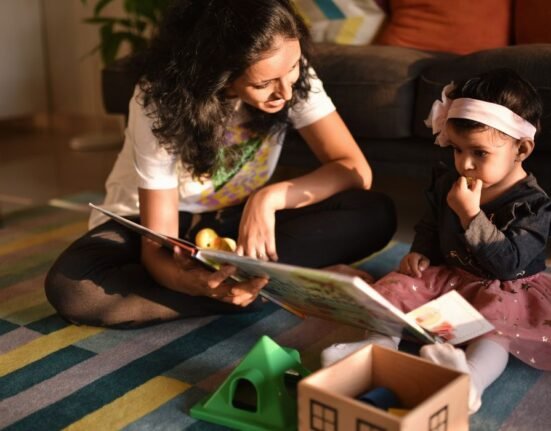We have all done group projects where there is this one person who does not do any work and enjoys anonymity due to the grading injustice. This can be understood as having anonymity in a large group. It is when a person’s identity is either hidden or unknown hence leaving them untraceable. Depersonalisation is a concept when the individual loses a sense of identity and self-awareness, having a diminished sense of personal responsibility. In an online discussion forum, a user posts rude comments under a pseudonym. Since their real identity is hidden, they feel detached from their actions and don’t worry about the consequences, leading to more irresponsible behavior.
Why does it happen?
It occurs due to various reasons like
- Loss of personal identity: Due to being in a group, individuals tend to follow the norm and hence, lose self-awareness, valuing group emotions much more. The collective mindset becomes dominant, and personal inhibitions are diminished be accepted more. For example, in concerts, individuals tend to engage in the behaviour of pushing and chanting, which they wouldn’t do normally.
- Arousal and sensory overload: Being in groups often tends to heighten emotions, and overwhelm the individual. They might not be able to think individually or act independently. The excitement or intensity of the situation can lead to impulsive behaviour. For example, watching a sports event on TV vs live in a stadium will let you experience different set of emotions- which are more heightened live than watching at home.
- Lesser accountability: It is hard to trace individuals in a large group. Hence facing the consequences of their actions is not likely. For example, rude and offensive comments made on social media pages.
These are not limited to but are significant contributors to behaving in a certain way within a group. Hence, these psychological factors lead to a decrease in self-awareness, an emphasis on collective identification over individual identity, and an increase in anonymity and deindividuation. In these conditions, people are more likely to follow the norms of the group, even if those norms run counter to their personal beliefs. This explains why people may behave more violent, aggressive, or uncontrollably in large crowds than they would in other situations.
What Can a Person do?
1. Increase Self-Awareness
Identify: Recognize when you’re losing your sense of individual identity in a group setting.
- Are you acting differently than you normally would?
- Are you going along with behaviours just because others are doing it?
Prevent: Remind yourself of your values and beliefs. Stay conscious of your actions.
- Would you behave the same way if you were alone or if your identity were known?
Example: At a protest, if you notice yourself getting swept up in aggressive chants, pause and reflect on whether this aligns with your values. If it doesn’t, step back from the situation.
2. Foster Personal Accountability
Identify: Notice situations where anonymity might lead to behaviour you wouldn’t engage in if you were identifiable.
- Are you more likely to post hurtful comments online because your identity is hidden?
Prevent: Imagine that your actions are being observed by someone you respect. This mental exercise can help you behave more responsibly.
Example: Before posting a comment online, consider whether you would say the same thing if your name and face were attached to it.
3. Develop Group Awareness
Identify: Pay attention to the dynamics of the group you’re part of.
- Is the group’s behaviour escalating in a way that feels uncomfortable or extreme?
Prevent: If you notice the group heading in a negative direction, take a stand or distance yourself.
Example: If you’re at a concert and notice the crowd becoming aggressive, resist the urge to join in.
4. Strengthen Individual Identity
Identify: Be aware of moments when you feel pressure to conform to group norms, especially if they conflict with your personal beliefs.
Prevent: Reinforce your sense of self by setting clear personal boundaries and goals.
Example: In a work meeting where groupthink is taking over, make it a point to voice your opinion, even if it differs from the majority. This can prevent the loss of critical thinking.
Read More: Spotting Manipulation: How to Protect Yourself and Set Boundaries
Create Smaller, Connected Groups Identify
Identify: Notice when the size of the group makes you feel disconnected or anonymous.
Prevent: Engage more closely with a smaller subset of the group where personal connections are stronger.
Example: In a large online community, focus on building deeper connections with a few members rather than getting lost in the crowd. This can create a sense of accountability and shared values.
Current social psychology research highlights the significant effects of deindividuation and anonymity in group environments. Studies reveal that people who feel anonymous have lower levels of self-awareness and accountability, which frequently causes them to act in ways they usually would not. According to a 2020 study, people who are part of big, anonymous networks are less likely to take personal responsibility, which makes them more likely to participate in antisocial behaviours.
Read More: Antisocial Personality Disorder: Symptoms, Causes and, Treatment
Research on social media, where anonymity frequently results in increased anger and aggression, shows similar results. However, it has been demonstrated that interventions that support personal accountability and self-awareness lessen these consequences. A study showed that there is a significant reduction in the risk of undesirable behaviours when group members are reminded of their individuality and moral ideals.
These results have important ramifications for group dynamics in both online and offline environments. The cultivation of self-awareness, personal accountability, and well-defined boundaries helps individuals withstand the influence of groupthink and uphold their moral standards. This leads to better group situations where activities are more in line with morally right and good goals.
References +
- Diener, E., Lusk, R., DeFour, D., & Flax, R. (1980). Deindividuation: Effects of group size, density, number of observers, and group member similarity on self-consciousness and disinhibited behavior. Journal of Personality and Social Psychology, 39(3), 449–459.https://doi.org/10.1037/0022-3514.39.3.449
- Douglas, K. M. (2019). Deindividuation – Group norms. Encyclopedia Britannica. https://www.britannica.com/topic/deindividuation/Group-norms
- NEAL, D. M. (1993). A FURTHER EXAMINATION OF ANONYMITY, CONTAGION, AND DEINDIVIDUATION IN CROWD AND COLLECTIVE BEHAVIOR. Sociological Focus, 26(2), 93–107. https://www.jstor.org/stable/20831651
- Nickerson, C. (2021, October 8). What Is Deindividuation in Psychology? Definition and Examples – Simply Psychology. Www.simplypsychology.org. https://www.simplypsychology.org/what-is-deindividuation.html
- Nitschinsk, L., Tobin, S. J., Varley, D., & Vanman, E. J. (2023). Why Do People Sometimes Wear an Anonymous Mask? Motivations for Seeking Anonymity Online. Personality and Social Psychology Bulletin, 0(0). https://doi.org/10.1177/01461672231210465
- Zou, M., Feng, J., Qin, N., Diao, J., Yang, Y., Liao, J., Lin, J., & Mo, L. (2022). The Effect of the Quantity and Distribution of Teammates’ Tendency Toward Self-Interest and Altruism on Individual Decision-Making. Frontiers in Psychology, 12. https://doi.org/10.3389/fpsyg.2021.785806













Leave feedback about this